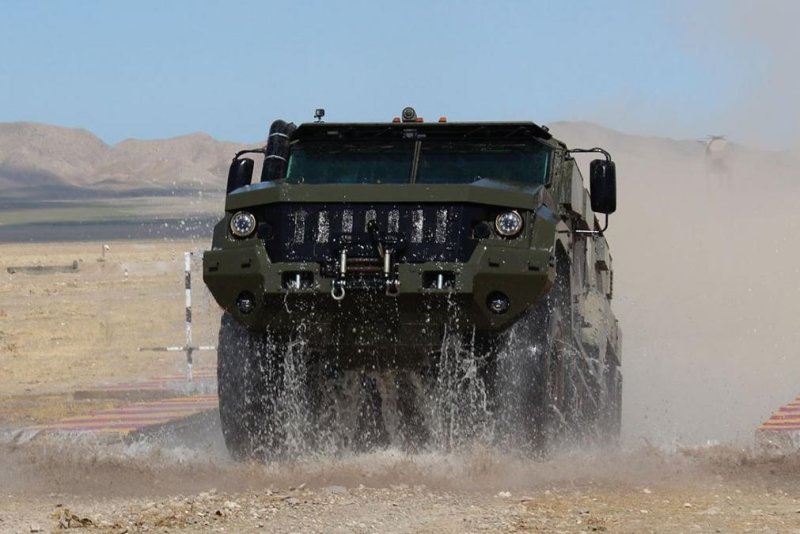A Congressional Research Service report on Thursday said that Russia's approach to modern warfare is holistic, with greater emphasis put on non-military strategy. Photo courtesy of Russian Defense Ministry
Aug. 21 (UPI) -- A report on Russia's military doctrine indicates a shift away from reliance on nuclear capability and emphasis on the military as only one element of strategy.
The report by the Congressional Research Service on Thursday, notes Russia's "new generation warfare."
It cites comments by Gen.Valery Gerasimov, Russia's chief of general staff, indicating that "The role of nonmilitary means of achieving political and strategic goals has grown, and in many ways exceeded the power of force of weapons."
The report points out that Russia has expanded its military capabilities in the past decade, noting the Russian invasion of Crimea and its standing army in Syria. However, it acknowledges the military as a single component of an overall approach to warfare.
"New generation warfare describes a holistic approach to modern war that encompasses a range of political, military,information, and economic tools across situations and locations," the report said in part.
"It presumes conflict will often be preceded by psychological and informational contests to weaken an adversary's morale and capability to sustain conflict. [New generation warfare] does not lower the importance of military power; instead,it recognizes the added importance of non-kinetic and asymmetric tools."
It originated in a belief that Western countries were already using political strategies against adversaries, including support of democratic movements to undermine or overthrow regimes. The report mentions democratic protests in Ukraine, and the overthrow of Moammar Qadhafi in Libya, as examples.
"Rather than seeking to dominate a battlespace, Russia prioritizes flexibility and the ability to adapt to changing conditions in a conflict," it added, citing Russia's reliance on "irregular and non-state actors, backed by the limited injection of Russian troops to defeat Ukrainian forces."
The report also said that Russia classifies warfare into types of conflict, depending on size, region and scope, after fighting breaks out.
"These levels of conflict are important for understanding how the Russian military envisions the scale, nature, actors and levels of escalation in war," it said.















